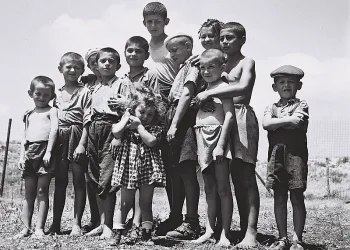How do 1,000 days of war reshape a continent’s priorities? Josep Borrell, the EU’s High Representative, addressed this question during his remarks at the Foreign Affairs Council (Defence).
This important meeting emphasized military support for Ukraine, European strategic autonomy, and deeper collaboration with NATO as Europe navigates unprecedented security challenges.
The State of European Defence
Borrell began by reflecting on the war in Ukraine, marking 1,000 days since Russia’s full-scale invasion. A stark contrast to Putin’s early predictions, the war underscores Ukraine’s resilience, supported by European allies. Borrell noted:
- Increased military spending: European Union Member States have raised defence budgets by 30% since the war began.
- New initiatives: The European Peace Facility has mobilized historic support for Ukraine, funding arms, and training programs.
To sustain this momentum, the Council focused on improving supply chains, joint procurement, and maintaining battlefield readiness for Ukraine.
Strategic Collaboration with NATO
A highlight of the meeting was the presence of NATO Secretary General Mark Rutte. Borrell reaffirmed that NATO remains central to Europe’s territorial defence, but he stressed the importance of the EU developing its own strategic capabilities.
The Strategic Compass, Europe’s defence blueprint, envisions:
- Building the EU’s industrial capacity to produce advanced defence equipment.
- Strengthening a European pillar within NATO for coordinated action.
Borrell emphasized,
“Europeans must take responsibility for their own defence—not just as arms producers, but as strategic actors.”
Defence Achievements in Numbers
The EU’s defence evolution is marked by tangible progress.
Focal Initiatives |
Effect |
|---|---|
| Strategic Compass | Unified vision for EU defence; guides Member States on capacity-building. |
| European Peace Facility | Delivered unprecedented military aid to Ukraine, including advanced weaponry. |
| EUMAM Ukraine Training | Trained over 65,000 Ukrainian soldiers for battlefield deployment. |
| Increased Defence Spending | Member States’ collective military budget rose to €326 billion in 2023. |
Challenges and Reflection
Borrell reflected on Europe’s journey in defence cooperation over the past five years. Despite progress, gaps remain. Not all Member States contribute equally to collective defence spending; some surpass the 2% GDP target, while others fall below.
Coordinating these efforts is vital to avoid duplication and inefficiencies.
Addressing concerns about U.S. support for Ukraine potentially wavering, Borrell urged proactive European leadership.
“We cannot wait for decisions across the Atlantic. Ukraine’s defence needs are immediate,” he said.
Preparing for the Future
The Council also discussed long-range weapon deployment, an issue where EU nations currently lack consensus. Borrell expressed hope for alignment, particularly following the U.S.’s recent decision to allow advanced strikes on Russian territory.
Looking ahead, Borrell highlighted ongoing risks of the war spreading and its global impact on food, energy, and security. His message was clear: Europe must remain united and committed.
Sources: THX News & European Union.








